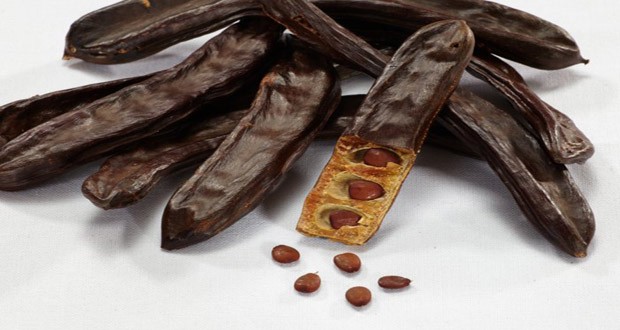HOMS,(ST) – Nutrition expert at the Petrochemical Engineering Faculty at Al-Baath University Dr. Rana Mustafa advises carob drink to ease the movement of the muscles’ bowels, treat irritable colon and alleviate the cough.
Ceratonia siliqua, commonly known as the carob tree, St John’s-bread, or locust bean is a species of flowering evergreen shrub or tree in the pea family, Fabaceae. It is widely cultivated for its edible pods, and as an ornamental tree in gardens. The fruit is found the in Mediterranean.
Dr. Mustafa refers to the many benefits of the fruit being contains 55 percent of sugars and 20 percent of high-quality of protein and fats, and the powder of seeds contains 60 percent of protein, vitamin A, B1, B2 and B3 in addition to potassium, calcium, magnesium, iron, phosphorus and copper.
“The carob fruit contains a type of glue known as mannose and glicoz which equates to alkaline pH in the stomach and absorbs some of the harmful toxins and secretions contained therein,” Dr. Mustafa pointed out.
The carob, according to Dr.Mustafa, extends respiratory divisions and useful to foster mother, carob drink keeps on the freshness of the body and protects it from drought because it reduces the loss of the body fluids and thus maintains the balance of salt. It also renews activity and activates secretions of gall bladder.
Carob peels are used to remove adenoids warts and enters in the pharmaceutical and cosmetics industry, Dr.Mustafa added.
Dr. Mustafa recently organized a special food exhibition of carob fruits to confirm its importance as she made many types of carob chocolate and cake.
Sharif al -Khatib

